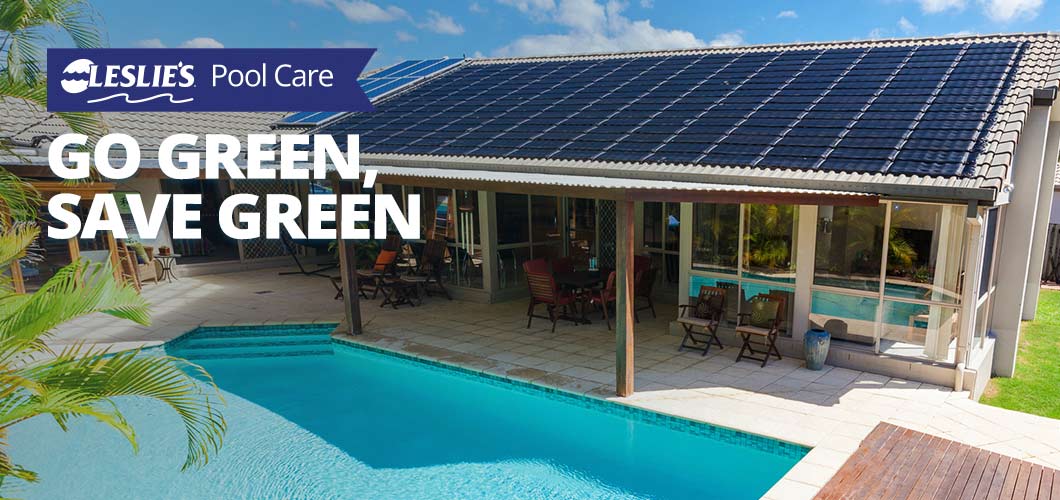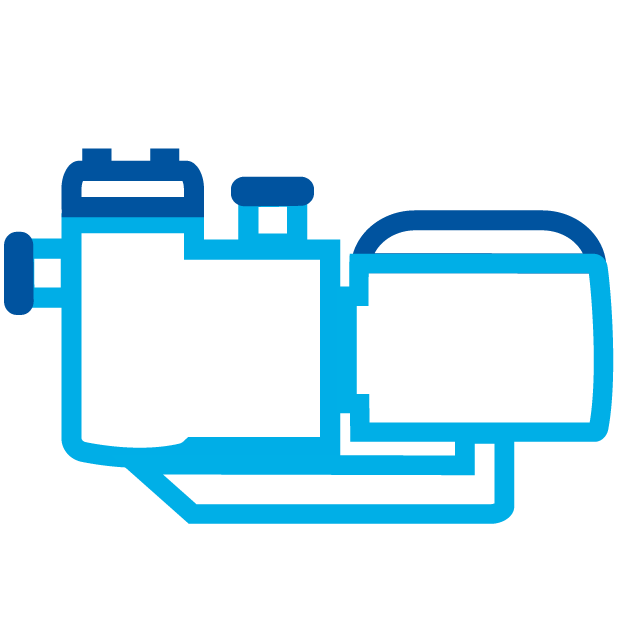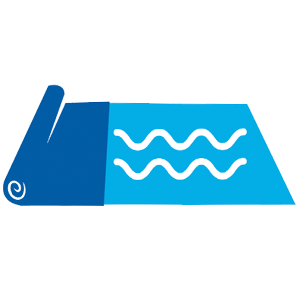
Go Green, Save Green: Eco-Friendly Pool Tips
We live in a society that’s “going green.” Every single day, we’re finding more and more eco-friendly solutions for everyday scenarios. People want to do their part to contribute to a healthier, more sustainable environment. From saving energy and conserving water, to using earth-friendly products and recycling, even the smallest changes have a big impact on our world. The best part? Going green can also save you some serious green, too! Everyone can appreciate a little extra money in the bank each month. But what about eco-friendly pools?
Great news! One of the easiest places to get started on your eco-friendly journey is in your backyard — it’s the pool! We’ve gathered some of the best tips available to help you save money on pool maintenance. In the process, you’ll also be doing your part to reduce your household’s impact on the environment. It’s a win-win! Keep reading for the best eco-friendly pool solutions and tips. Highlights include:

Energy Efficient Pool Pumps

Solar Pool Covers

Water Conservation and Pool Filters
Variable Speed Pool Pumps
Variable speed pool pumps have been around for many years. They’ve steadily gained popularity in recent years, and for good reason. A variable speed pool pump is the most energy efficient piece of pool equipment money can buy. Compared to single speed pumps, variable speed pumps consume less energy over a longer period of time to accomplish the same (or better) outcome. The efficiency is so good, in fact, that you can essentially pay for your new variable speed pool pump with utility savings over the course of a couple of swimming seasons. Curious about how much money you can save with a variable speed pump? Take a look at our Jacuzzi Energy Savings Calculator. In many cases, the savings can be as much as 80–90%.
The benefits don’t stop with energy savings. Water typically circulates slower and longer with a variable speed pump. This means your filtration efficiency goes up, and your risk of an algae outbreak decreases. Flexible programming can allow you to find the perfect setting that works best for your pool and maximizes efficiency. Variable speed pumps are also significantly quieter than their single speed counterparts, which makes for a more relaxing backyard environment. (Your neighbors will thank you, too!)
BONUS TIP: Run your pool pump at night or early morning to avoid peak hour usage charges. It’s still important to circulate the water during the hottest parts of the day. But with a bit of planning on how to split the pump run time, you'll save a little extra money on your utilities each month.
Solar Pool Covers
Evaporation is the leading cause of water and chemical loss in a pool. During spring, late summer, and early fall, evaporation can also quickly suck the heat out of your water. Solar covers can solve all these problems, and then some. As an added bonus, solar covers can pay for themselves in as little as one season from water, chemical, and energy savings.
Solar covers, also called solar blankets, are basically a sheet of heavy-duty UV protected bubble wrap. They come in several colors and thicknesses to provide the right level of benefits for your pool. The thick plastic layer acts as a solid barrier, while the bubbles allow it to float on the surface. This barrier greatly reduces the amount of water vapor, chemicals, and heat lost to evaporation. In fact, it can reduce water loss by as much as 95%, and can reduce your chemical usage by up to 30–60%. It's a must-have for pools with a heater or heat pump — solar covers help keep heat in the water and keep heating costs to a minimum. As an added benefit, solar covers prevent debris and leaves from entering the water, which reduces the time needed for daily cleaning, and reduces strain on your automatic cleaner, pool filter, and sanitizer.
A solar cover can also absorb and transfer heat from the sun’s powerful rays, increasing the water temperature by as much as 10–15 degrees Fahrenheit. For this reason, many pool owners use solar covers to help extend swimming season. The thicker the cover, the more heat it can transfer, and the longer it will last. If you use a pool heater, a solar cover is an absolute necessity. When the pool is not in use, leave the cover on to keep the heat in the water. This is just another eco-friendly pool benefit that will save you money over time.
BONUS TIP: Using a liquid solar cover can help reduce evaporation when the cover is off the pool. Although they don't offer the same level of evaporation prevention as a regular solar cover, liquid solar covers like Leslie's Cover Weekly or Leslie's Perfect Weekly still work to effectively reduce evaporation while the pool is in use.
Solar Heaters
If you’ve ever turned on a garden hose that’s been sitting out in the sun, you know the water coming out of that hose will be HOT! This is the same concept used for solar pool heaters. There are several types of solar heaters on the market. At the high end, there are complex rooftop assemblies that install on the roof of your home. There are also less expensive options, such as simple return valve accessories that connect to a dark garden hose or ground-level solar heater coil. All solar heaters have an upfront purchase cost, but all use a free source of continuous natural energy — the sun.
Heat Pumps
Using a heat pump is an eco-friendly pool alternative to traditional gas or electric pool heaters. They can reduce your carbon and emissions footprint, and cost significantly less to operate than other types of gas or electric pool heating systems. Heat pumps work almost like an air conditioner, but in reverse. Air conditioners pull heat from a house to cool it, sending the warm air outside. Pool heat pumps pull heat from the outside air, and transfer it into the pool to warm the water. They work best in air temperatures over 50ºF, making them a popular heating option for pool owners in moderate to warm climates.
Pool Filters
No matter which type of pool filter you have, you can still do your part to conserve water. Cartridge filters tend to waste less water than DE and sand filters, because cartridge filters do not require backwashing. For reference, a single backwash cycle can use up anywhere from 250–1,000 gallons of water. Using cartridge cleaner chemicals and/or spraying a cartridge clean uses significantly less water than a backwash cycle. As an added eco-friendly benefit, a cartridge pool filter also has a significantly higher filtration area, meaning the water can pass more easily through the filter. This places less strain on the pump, which may help improve your energy savings.
If you have a sand or DE filter, you may be able to repurpose the backwash water to use around your yard and water your trees, bushes and shrubs. You can even connect your backwash hose to a fountain that will broadcast the water evenly over your lawn. Just use caution before using pool water around your yard — many plants won't tolerate salt water, high chlorine levels, imbalanced pH, or water with recently added algaecide.
BONUS TIP: To extend the life of your filter media and prolong the time between cleanings, just keep your pool clean. Routinely empty out your pump strainer and skimmer baskets, regularly skim the pool to remove large debris, and invest in an automatic pool cleaner that doesn't rely on your pool filter, such as a pressure side cleaner or a robotic cleaner. More on that next!
Robotic Pool Cleaners
If you're looking for an easy, low-maintenance way to make an impact on your pool in several ways, get yourself a robotic pool cleaner. Unlike a suction or pressure side pool cleaner, robotic cleaners are independent of your pool’s plumbing, which puts less strain, wear, and tear on your filter and pump. Because of this, robotic pool cleaners are the most energy-efficient type of cleaner, and cost mere pennies to run a cleaning cycle. They provide superior cleaning performance compared to other types of cleaners, and they also provide additional filtration and circulation throughout your pool. In addition, robotic cleaners keep debris out of your filter, which can help prolong the amount of time between cleaning or backwashing the filter, which helps conserve water. Some robotic cleaners come with WiFi capabilities, making it easy to control them from an app on your phone.
LED Pool Lights
Still using an old-school halogen or incandescent light in your pool? Save money on your monthly pool electricity usage by upgrading to an LED pool light. Many of the older lights use 300–500 Watts, as compared to the much more energy efficient 40–45 Watt bulbs. That's a tremendous savings! As an added bonus, most LED lights come with color-changing options to add some personality to your pool. There are a handful of old lights that only require a simple bulb change to make the transition. If the lightbulb has an Edison base, you're in luck! However, in some cases, you may need to replace the entire fixture to make the change. Just make sure the light you order is compatible with your electric setup and can deliver comparable lumens. The voltage for pool lights is often either 120V or 12V.
Chlorine Alternatives
Looking to cut down on chemical use in your pool? There are pros and cons to both standard chlorine pools and their alternative solutions. Both are highly effective ways to sanitize water. It really comes down to what works best for your pool maintenance needs. If you're looking for alternatives, there are quite a few to choose from.
One popular option is to convert your pool to a saltwater system with a chlorine generator. This requires a bit more effort to get started, and will need some amount of ongoing maintenance to avoid the negative drawbacks. But many pool owners prefer this method of sanitation because of the numerous benefits. These include reduced chemical handling and storage, softer water, lower annual costs, and lack of a chlorine smell.
Another option is to supplement your chlorine’s sanitation power with mineral sanitizers. This method doesn’t require significant changes to your pool system. Your water will feel softer, and mineral systems can reduce the amount of chlorine added to the pool each week. Some pool owners also like using ozonators and UV light systems (or a combination of the two) to keep the water sanitary and reduce the need for chlorine. Unlike salt systems, none of these methods require massive changes beyond installation.
Specialty Chemicals
Using the right treatments in your pool water can help reduce costs on pool maintenance, while also reducing the amount of chemicals and water used. Let's start with enzymes. While technically not a sanitizer, enzymes help break down the non-living organic contaminants in your pool water — things like body oils, sunscreens, cosmetics, detergents, and other non-living organics left behind by swimmers. This helps your residual Free Available Chlorine work longer and more effectively in the water by reducing chlorine demand, effectively lowering the amount of chemicals needed to maintain your pool. Using enzymes as part of your regular pool maintenance routine can also help prevent oily buildup at the waterline and inside your pool filter. In most cases, this helps prolong the amount of time between filter cleanings, which helps conserve water.
Certain enzyme products offer multiple benefits. For example, Leslie's Perfect Weekly is a 3-in-1 pool maintenance formula that provides a weekly dose of enzymes, a phosphate remover, and a liquid solar cover. All of these elements work to save you money on both chemicals and water in your pool. If you own a pool heater, the liquid solar cover can also help you save money on energy since it will help keep heat in the pool.
Ready to start your journey toward a clearer, cleaner, “greener” swimming pool? Leslie’s can help! Our knowledgeable team of experts is ready to help you find the most energy efficient, eco-friendly pool solutions to fit your unique needs. Browse our extensive online selection, or stop by your local Leslie’s to get started.